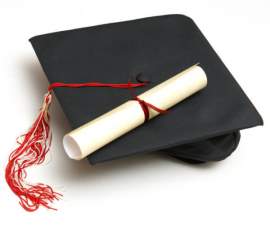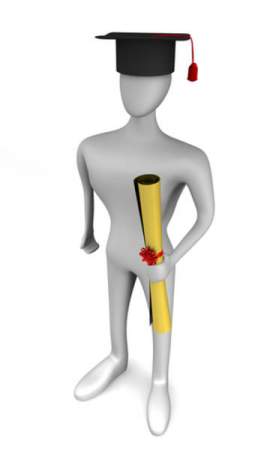
A Quick Overview of Investigation in a Law Office

Popular In Paralegal
Defendants Right To Appeal Common Law Heritage Functions Of Law Infancy Insanity Intoxication Judicial Interpretation Common Law Legal Analysis Litigation Pretrial Motions Third Party Rights Roles Of Paralegals In Adr Legal Research Validation Paralegal Classification Of The Law
Nature & Context:
The legal assistant, although forbidden from executing duties within the scope of the law, plays an essential role within the law office. Lawyers who are often too busy to perform information gathering tasks, tend to delegate such roles to paralegals or legal aids within the law office.
The lawyer is focused on growing his/her business by interviewing or meeting with prospective clients, and lending legal advice to those who need it. The lawyer also, commonly attends trials or practices law. As a result of their efforts to strengthen or extend the firms reach, the lawyer needs a bridge which connects information and organization to the lawyers relevant legal matters. The paralegal, who must possess a strong knowledge of legal matters, acts as this critical bridge.
Fact Analysis:
To streamline a legal investigation paralegal must take part in an elaborate fact analysis campaign. The paralegal is responsible for gathering all relevant information and then subsequently compiling his/her findings into a concise, yet thorough legal document. The legal document is then transferred to the paralegal for review.
After the facts are analyzed, the paralegal will attach relevant court precedents, critical evidence, and witness statements to the legal document. The legal memo is used by the lawyer to formulate a strategy and a foundation for the upcoming legal matter. The fact analysis must be organized and must be stripped of misinformation to ensure maximize efficiency for the lawyer.
Distortions in Investigations:
The paralegal acts as the lawyer's eyes and ears during the fact analysis stage, interview process, and review of all evidence. The paralegal is connected to all evidence as it pertains to a specific legal matter. The paralegal or legal assistant is rewarded the responsibility of supplying the lawyer with information, witness statements, and facts as they relate to the lawsuit in question. As a result of this importance, the paralegal must ensure the delivery of only suitable evidence.
To rid the legal documents from misinformation the paralegal will follow a strict procedure when interviewing a witness or evaluating evidence. The paralegal will ask numerous questions, label witnesses into categories, and review all information and their relation to historical precedents to ensure validity and the dismissal of misinformation.
Sources of Evidence/Leads:
The paralegal in many ways is similar to a private investigator or private eye. The paralegal must obtain an assortment of information and be able to investigate aspects of legal matters that require certain skills. Lawyers often times stray away from hiring private eyes because of their high prices and desired long term commitment.
As a result of this unwillingness, the paralegal will often take on the role of private eye. In order to satisfy the needs of the lawyer and to supply all relevant information, the paralegal will commonly search and interview witnesses for relevant evidence or crucial leads. The ability to find such leads or evidence could be the difference between victory and defeat in the legal battlefield.
Gaining Access to Records:
The chief responsibility of the paralegal is to compile information, witness statements, and evidence for a lawyer. The necessary facts and evidence obtained are used to formulate the necessary strategy utilized to win a lawsuit. As a result of this necessity, the paralegal is allowed to access a wide array of records. Although many of the resources are found within the law office in the form of legal books and the Internet, much of the previous court rulings and precedents are found in government archives.
Technological innovations have greatly streamlined the paralegals efforts in evaluating evidence and compiling legal reports. The majority of court rulings and government records are available to obtain online or through highly organized filing systems.
Evaluating Evidence:The evaluation of evidence is a crucial process that must be followed extensively. Under evidence law, paralegals adopt a strict procedure that requires the fulfillment and delivery of extensive and accurate evidence. The process is lengthy but must be followed precisely to solidify the inclusion of relevant and accurate information within a legal document.
The evidence within such documents is used to formulate strategies and seek victorious settlements. Since millions of dollars or priceless emotions can be at stake in a lawsuit the building blocks of facts must be evaluated appropriately.
Interviewing Witnesses:
In addition to researching and compiling information, a paralegal must also interview relevant witnesses involved in the legal matter. The first priority in the interview process is to establish and specify an expert witness. This form of witness has a specialty or possesses an expertise for a certain subject that is involved in the legal matter. Considering there are tens of thousands of fields that contain expert witnesses the paralegals role of sifting and pinpointing the particular expert is arduous.
In order to accurately identify the expert witness a paralegal must have an exact understanding of the issue in question and the subsequent opinion needed. Interviewing other witnesses requires a strict procedure to be followed. There are distinct classifications for witnesses (Lay witnesses, eye witnesses, friendly witnesses, hostiles witnesses, and experts.)
Each form of witness contains different needs and methods. The complexity and difficulty of the paralegal is exemplified through the investigation process and more specifically through the procedure of interviewing witnesses.
Taking a Witness Statement:
During the investigation process a paralegal will interview an assortment of witnesses. While each witness is being interviewed a proper statement must be constructed to document the findings or opinions of the particular witness. Following the conclusion of the interview a paralegal must create a memo or statement to provide an overview or summary of the information exchanged.
As a result of the supervising attorney's absence in the interview process, the witness statement will provide a concise review of all the necessary information, statements, and findings from the questioning. To ensure the delivery of truthful or valid statements and evidence the paralegal will supply each witness with a competency test.
The test which is administered to all forms of witnesses aims to enlighten the paralegal and reveal the true nature of the witness. In addition to the competency test a credibility test is also applied to each witness following the conclusion of the interview.
NEXT: Can A Paralegal Gain Access to Records?



















